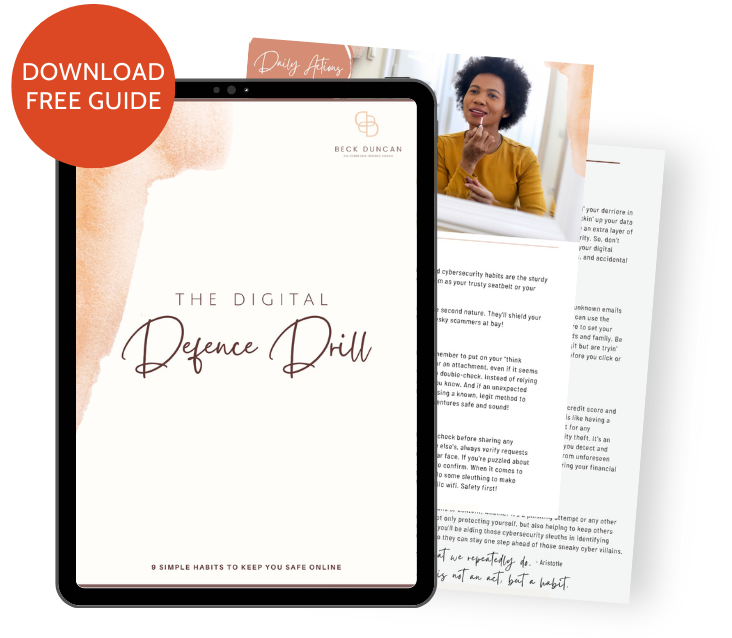
Ladies, we know the drill: Google’s our go-to gal when curiosity strikes. Even digital media sites like Lifehacker are aware of this and try to make their content extra clickable. But guess what? Scammers are in on the secret too—and they’re more than happy to use our Google habits against us. Don’t put your cyber security at risk be sure to continue reading…
I’m not pointing fingers at those sneaky sponsored ads (though they can be trouble). Instead, I’m talking about the crafty con artists who exploit popular search phrases to lure us into their web of deception. So, here are five things that you, my fellow female entrepreneurs, should Google with extra caution.
1. “Free credit report” Oh, the irony! One of the riskiest searches, which should protect your financial well-being, can put you in harm’s way. We all know we’re entitled to free credit reports, but if you’re not careful, Googling this phrase could lead you straight into a scammer’s lair.
These phony sites will ask for loads of personal info, making you think it’s needed to access your report. But instead, you’ll be handing over your precious deets to someone who doesn’t have your back.
Steer clear of this cyber risk by going straight to Clear Score (formerly Credit Simple) It’s the legit way to check your credit with—no Googling required!
2. “[Company] customer service number” We’ve all been there: Desperate for customer service help, we dial the first seemingly official number we find. But scammers are counting on your haste, hoping you won’t notice the subtle red flags hinting that it’s not the real deal.
Imagine calling a fake cell phone company number. They “confirm your identity” with a security code text and bam! You’ve just given them the keys to reset your password—or worse.
To avoid this cyber safety hazard, don’t just dial the first number that pops up on Google. Verify the source URL and make sure it’s the official website. A quick peek at the “about us” or “contact us” pages can help you spot anything fishy.
3. “High-paying remote job” Let’s face it: If it sounds too good to be true, it probably is—especially when making money online in 2023. The digital world is crawling with job posting scams.
Look for vague descriptions, outdated posts, and HR emails from free domains like @gmail. Your intuition will thank you.
4. “Free people finder” We’ve all done it—creeping on people online (don’t deny it!). But using a “people finder” to dig up dirt on someone else might expose you instead. Many sites are sketchy and willing to snatch your money and personal info.
Fear not! There are safer ways to creep without putting yourself at risk. And if you want to opt out of appearing on people finder websites, you can do that too (though it’ll take some elbow grease).
5. “Best crypto wallet” In the quest for the ultimate crypto wallet to keep your digital treasures safe, Googling isn’t always your friend. Scammers are just waiting for you to fall into their well-optimized traps.
Instead, find a reputable site offering trustworthy advice and follow their links to recommended wallets. Our recommendations are a great place to start!
Remember, ladies, knowledge is power. Stay informed about cyber security and keep your businesses safe by being extra cautious when Googling these terms. Happy searching!


